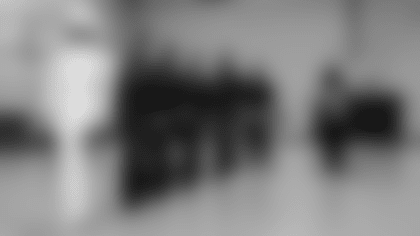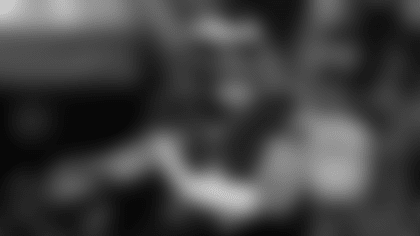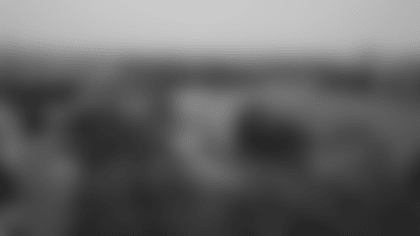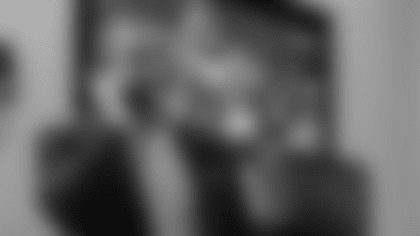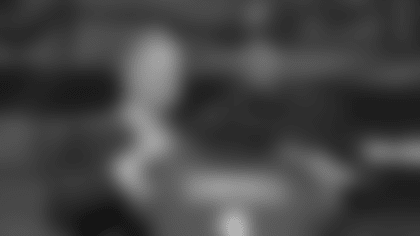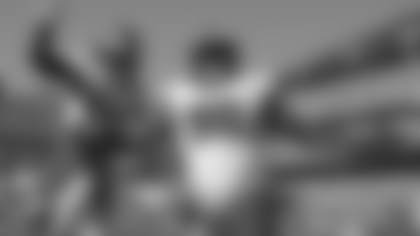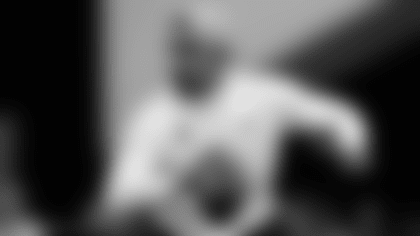With the start of Training Camp just around the corner, the biggest question, of course, is who will end up wrestling away the job of starting quarterback for Chip Kelly's first season as head coach of the Eagles. Kelly has said all along that he'll let the competition play out on the field, but he did give some insight into what he'll be looking for over the next couple months during a roundtable discussion with reporters a few weeks ago. For starters, Kelly explained why he hasn't yet settled on a No. 1 quarterback.
"I just got here," he said. "Who was the starting quarterback last year going into camp for the 49ers? And who was the starting quarterback who finished the season? Who was the starting quarterback [in camp] for the Seattle Seahawks? Matt Flynn. Who was the starting quarterback [at the end of the season]? Russell Wilson. Now, (Jim Harbaugh and Pete Carroll) are two guys that I respect the heck out of, I've coached against both of those guys. They're tremendous coaches. They named their starting quarterback and then they had a competition, and the other guy won the job. If I name one, what am I going to gain? How do I name him in my position? We've been out there in shorts and T-shirts since April 1, and I'm going to name a starting quarterback out of that? They haven't been hit, there's been no rush, I don't think it's fair."
Meanwhile, Kelly said, the competition for the position is never over, even after a starter has been named.
"I reserve the right to change anything," he said. "The best players play, and just because you're the starter, you still need to understand that it's always on the line. It's on the line every single day for you. So if I name Joe Jones the starting quarterback and his first 50 passes are interceptions, I better make sure I go to the number two guy. Just because they were named the starter, that's not it. Now what's the next step? Just because you get drafted, you didn't make the NFL. Now you've got to make the team. Now you make the team, you've got to become the starter. Now when you've become the starter, now what do you do? Now what's the next step? You have to be successful."
Kelly added that his goal is not to find the best quarterback for the Eagles three years down the road, but rather to identify the quarterback who will best lead the team in 2013.
"My job is to win right now," said Kelly. "How do you think I'd be perceived in Philly if I told them we were going to write this year off? Those people that are waving to me on the streets right now, that isn't going to happen. But that's never been my mentality either. We're not writing anything off. We're going out there to compete and see how it falls. But that's never been a mentality of anybody on our staff or anybody in our locker room. You want to talk about our players buying in, if I went into the locker room and said this is going to be a real good year for us to get ready for the following year, that's not going to work. No one has a mindset like that. Our decision isn't based upon 'What is the future two years down the road, three years down the road?' I don't think that far."
Here's a rundown of everything else Kelly said about the upcoming quarterback competition …
On how he and his staff evaluate the quarterback position: "There are a lot of things. It starts with their eyes and where are they throwing the ball, because the eyes lead the body, and then a lot of the accuracy issues that occur with anybody throwing the football go with footwork. Is your body aligned with your target in terms of where you're trying to place the ball? So, it's the whole body in terms of where you are throwing the football, from your feet up to your eyes."
On improving quarterback mechanics: "There are drills. There are fundamentals to any sport and I think you have to continue to work on them on a daily basis. [Quarterbacks coach Bill Lazor] has done a great job with our quarterbacks since we've been together on working on that. It's not something where we say 'we can't', but there are some times when you see guys, and for us it's more of an evaluation process of 'you're not going to be able to throw the ball, and we need to throw the ball.' There are two ways of getting better, either elite selection or elite training, but it's a lot easier to train someone who has the ability to do it, then to say 'hey, we can teach him.'"
On identifying and correcting quarterback mechanics at the pro level: "You can see [issues] but a lot of times when they get to this level, if that's the way that they do it, you're not going to be able to change it in time because they've thrown it that way for thousands and thousands of hours of throwing the ball and that's just how they throw it."
On evaluating quarterback intangibles: "I think that they have to be good decision makers, and I think that's the biggest thing for that position is how do you make decisions in the heat of the moment, and do you see those over time, and that's what (Oregon quarterback Marcus Mariota) does right now. He was a really good decision-maker and that's part of the whole process, but I think that's a tough thing to evaluate. A lot of guys get evaluated at a combine, where they don't have to make decisions. They get to drop back and throw it to that. You don't get to see that unless you get to see them in person and spend time with them. That's a hard thing to do. We were fortunate, in Marcus's situation. He came to our camp, so we got to spend a week with him."
On whether or not the staff can evaluate quarterback decisions during the preseason: "The best part about it is that we have to. I can't call a timeout and say we're not ready. We're going to have to name a starter at some point in time. That's why I think it would be unfair to do one right now because there haven't been enough situations to evaluate. If someone says 'Hey, we've got to play a game tomorrow', then we've got to make a decision. But we don't have to play a game tomorrow. We have until September 9th, so we'll see how that works itself out, but as I've said before, with a big decision like that, you've got to make sure you take the whole body of work into consideration. If on practice three they had a [bad] practice, do they come back in practice four and bounce back pretty good? Or do you make your decision after practice three? We're not forced to make a decision soon, and I don't think the positives of making an early decision outweigh making sure we make the right decision."
On the quarterbacks feeling tense during the competition: "I think [they do], but I don't know. Can it get tense? Yeah, people are competing for a starting job in the NFL, but it's no different than any other position. I understand the game. More scrutiny is placed on the quarterback position than anything else, but there's no difference with who's your safety or who's your linebacker. There's competition at every spot. Those guys can get testy too. It's the nature of the game. Every time we've needed to make a decision on the quarterbacks, every day you come off the practice field, they all want to know how the quarterbacks did. No one was like 'How did the gunner on the punt team do? Have you made your decision on that?' Still, as coaches, we evaluate every position the same way we evaluate the quarterback position."
On having a quarterback competition among more than two players: "I've had more than two in the past. It just depends. Everywhere I've been, it's played itself out on the field. Does that mean it's going to happen here? I don't know. But I've never been in a situation where we had to make the decision where it's 50-50 and we have to pick it out of a hat. Somebody, over the course of time, has stepped up and has 'won the battle'. That's what you're hoping to have happen again here, and hopefully it's evident to everybody that it's this guy because this guy stepped up."
On quarterback playing time during the pre-season: "That's the big question. How much of a body of work can you give those guys? It's the same thing we talked about from a practice standpoint of being physical, is how much are we going to get enough to evaluate them, but also mindful that we can't get them injured either. There's a delicate line there."
On evaluating quarterbacks based on previous years: "I know what their skill set is, but it's very hard for me to evaluate the body of work because you don't know what they were instructed to do. When you see a play call at the bottom of the computer screen, you don't know what Marty [Mornhinweg] told him to do on that play, and when he throws it away you're like 'boy, that's a bad decision', but then he may have been told to throw it away. Unless you intimately understand what they were told to do, then how can you make an evaluation on whether that was the right thing to do or the wrong thing to do? It could have been, 'I don't care what happens, throw the ball to the tight end', and then you watch the film and say 'Jeez, he really forced that one in there.' Well he may have been told to force that one in there, so when we evaluated and we were looking at skill set: do they have the arm velocity? Do they have the ability? But our evaluation has to be from when we got our hands on them April 1st until we get here in August just because I don't know what they were taught. I wasn't here in the past."
On how pre-season quarterback injuries could affect competition: "I don't deal with hypotheticals. That's another reason I've always said 'Why would you name a starting quarterback?' when a guy goes out and on the second day- we name Joe Jones our starting quarterback- and then on the second day of preseason camp he rolls his ankle and is done for the year. There's nothing to gain. I've always had that part of it. So in terms of the hypothetical if the guy gets hurt? Yeah, he's not going to be in the mix."
On players voicing their frustration if they aren't starting: "That doesn't bother me."
On the importance of a quarterback making correct pre-snap reads: "It depends on what you're doing, but it's huge, understanding what the defense is doing and conceptually what we're trying to get accomplished. There are certain run plays we can run off of any look, where the pre-snap read isn't that important, but there are certain plays in the run game- some in the run game and a lot in the passing game- that you need to understand what you're going against."
On the importance on evaluating quarterbacks based on game performances: "There's a difference in a game, no matter who it is, and there are still differences between practices and games. They're at the US Open right now, and they're going to hit five balls onto the green. Then on Thursday, they're only hitting one ball onto the green. So it's a different US Open on Wednesday that it is on Thursday. It's a different deal, but that's what competition does, and that's the unique thing about it. At least a preseason game is different than a controlled practice, and we're going to have to be judges off of that because we aren't tackling our quarterbacks in scrimmages, but I don't think we can make that pact with anybody else in the preseason games. Then you become a different guy when you can actually be hit. There's a feeling, when you're a quarterback wearing a red jersey, of these guys aren't going to hit me. That's a different deal. The Patriots are going to hit him. The Jaguars are going to hit him, and the Panthers are going to hit him, and that's a different deal. Guys act a little differently when that happens, so we have to put them in that position to evaluate them from that standpoint."




